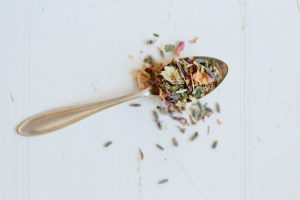The Naturopathic Co.

You're using an outdated browser. Please upgrade your browser to improve your experience.
Premenstrual symptoms can be different for everyone. The naturopathic approach is to evaluate individually, so that we may find the underlying cause of the imbalance and then correct it. In terms of treatment, it’s important we take a holistic approach (dietary changes, specific supplementation, exercise, sleep, stress).
Symptoms can range from mild (where we can go about our day with a little extra support), to the more serious PMDD (Premenstrual dysphoric disorder severe affective mood disorder). They are characterized by recurring somatic and psychological symptoms during the luteal phase of the menstrual cycle, and these symptoms resolve within a few days of menstruation.
Although PMS can vary from person to person, typically, symptoms are described as any combination of the following:
Physical symptoms: bloating, swelling, weight gain, mastalgia (breast pain, tenderness), cramps, back pain, headaches, or an exacerbation of chronic conditions (migraines, asthma, and even thrush/UTIs).
Psychological complaints: Irritability, anxiety, depression, mood swings, feeling sad or tearful, hopeless, or self-deprecating, feeling tense, increased interpersonal conflicts, or a sense of not being able to cope.
There can be many factors contributing to PMS, and as each person is different, we find more effective treatment takes place once we identify the underlying drivers for the individual. These could be hormonal imbalances such as excess oestrogen, prostaglandin deficiency, low progesterone, or abnormal neurotransmitter response to female hormones, abnormal hypothalamic-pituitary-adrenal {HPA} axis function, nutritional deficiencies, or steroid hormone sensitivities. Stress also plays its part in PMS, as it does in many conditions.
From a naturopathic perspective, we can have success in altering imbalances in circulating ratios of oestrogen and progesterone by making dietary changes. We can also assist in the successful metabolism of hormones (specifically excess or unopposed oestrogen which has been implicated in PMS).
Although it’s important for us to firstly understand the underlying cause of PMS for each individual, there are some blanket dietary objectives that we can adopt which are beneficial in treating PMS:
For PMS to resolve, we must also ensure that our nutritional needs are met.
B vitamins – to support energy levels, metabolism of carbs, and stress response. Specifically vitamin B6, which is a crucial co-factor required for the biosynthesis of neurotransmitters, including dopamine (involved in motivation, memory) and serotonin (stabilises mood, happiness, feelings of wellbeing). B6 deficiency reduces dopamine levels in the kidneys which increases sodium excretion & causes the fluid retention seen in PMS. Low levels of B6 increases prolactin levels and results in more psychological symptoms during the luteal phase. Food rich in B vitamins are asparagus, legumes, nuts (almonds, walnuts), spirulina, avocados, broccoli, chicken, eggs, salmon, sunflower seeds, mushrooms, carrot.
Calcium – With a lot of young women opting to go ‘dairy-free’, it’s really important we’re on a good quality therapeutic level of calcium supplementation. Low levels of blood calcium have been linked to some PMS symptoms (particularly relating to mood; irritability, depression, fatigue). Foods rich in calcium are almonds, broccoli, buckwheat, eggs, green leafy vegetables, soybeans, turnips, sesame seeds.
Essential Fatty Acids – Inflammation can be treated with essential fatty acids, but it has also shown to be effective in treating pain-related symptoms of PMS. Foods rich in essential fatty acids are tuna, salmon, walnuts, flaxseeds, seaweed.
Magnesium – There are multiple ways in which magnesium influences PMS; fluid retention, cramps, stress/anxiety, cravings. Foods rich in magnesium are almonds, cashews, cacao, legumes, figs, eggs, parsnips, soy beans.
Tryptophan – Mood swings and irritability in PMS are linked to a decline in serotonin, and tryptophan is required for serotonin production. Foods rich in tryptophan are turkey, bananas, pumpkin seeds, sesame seeds, legumes.
Vitamin E – required for regulation of steroid hormone synthesis (steroid hormone sensitivities are linked to PMS symptoms). Food sources of vitamin E are almonds, beef, corn, eggs, hazelnuts.
Zinc – deficiency in zinc can link to thyroid imbalances (which in turn can affect female reproductive hormones). Ensuring adequate zinc in the diet can help with lowering inflammation, help regulate the menstrual cycle, help with ovulation, stress, and blocking of excess androgens. Foods rich in zinc are beef, capsicum, eggs, oysters, sunflower seeds, pumpkin seeds, ginger.
We also find herbal medicines very effective in treating menstrual disorders. Herbs such as vitex agnus-castus, paeonia lactiflora, withania somnifera, and angelica sinensis all have their place in treatment of PMS. See your naturopath if you’d like to investigate your PMS and look at herbal treatment alongside dietary and lifestyle modifications.
Yvette is a qualified Melbourne-based Naturopath and Nutritionist, MINDD Practitioner, member of the Naturopaths and Herbalists Association of Australia, and Complementary Medicine Association. Yvette specialises in the treatment of digestive complaints, skin issues, mood disorders, hormonal concerns, fatigue, and also has a key interest in children’s digestive and neurological conditions. Yvette consults in South Yarra, Camberwell, and Australia-wide via Zoom.
This post was originally written for Nourish Melbourne
Comments are closed.